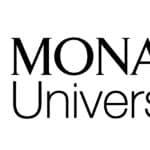The Lorenzo Natali Media Prize was launched in 1992 to recognise excellence inreporting ondevelopment issues, inequalities, human rights and poverty eradication. It was created by DG DEVCO, and named after Lorenzo Natali, a precursor of European development policy.
Application Deadline: 28th April 2023
Eligible Countries: International
About the Award: The Lorenzo Natali Media Prize was launched in 1992 to recognise excellence in reporting on development issues, inequality, human rights, and poverty eradication. It was created by the European Commission’s Directorate-General for International Cooperation and Development (DG DEVCO), and named after Lorenzo Natali, an early champion of European development policy.
Today, the Lorenzo Natali Media Prize’s community of past winners, jury members and partners have created a platform supporting reporting on development. The Prize also gives a voice to those whose vital message is often overlooked or ignored.
The Prize is organised by the European Commission in close collaboration with strategic regional partners and ambassadors.
THEMES: Entries to this year’s competition should relate to the issues of:
- Migration
- Digital
- Healthcare
- Inequality
- Jobs and employment
- Poverty eradication
- Sustainable development
- Education and skills development
- Peace, democracy and human rights
- Environment, biodiversity, climate action
Field: The 2023 Lorenzo Natali Media Prize will be awarded in the following three categories:
- International Prize: reporting published by a media based in one of the European Union’s partner countries on development and cooperation.
- Europe Prize: reporting published by a media based in the European Union (not including the United Kingdom).
- Best Emerging Journalist Prize: open to journalists under 30 whose reporting was published by a media based in the European Union (not including the United Kingdom) or in one of its partner countries on development and cooperation.
Type: Contest
Eligibility:
Publication period
- Entries must have been published (an online version must be accessible) or broadcasted (radio or television with an online version accessible) between 1 Apr 2022 and 28 April 2023.
- 2022 winners cannot compete again for the 2023 Prize, but are eligible for subsequent editions.
Author(s)
- Submitted journalistic works can have one or several authors. The participants must be the authors and holders of the copyright and the moral rights of their work.
Language requirements
- Entries are accepted in all languages. However, a translation in English, French or Spanish is required for the entries that were not originally published in one of these languages. The entries will be evaluated on the basis of translated texts provided in one these three languages.
Length
- For text-based applications, the length limit is 2 000 words. Video and audio entries can be up to 10 minutes long.
- The Prize Secretariat reserves the right to disqualify any entry that contains hurtful, misleading, libellous or vulgar content, or that contains any material that could constitute or encourage conduct which would be considered a criminal offence, give rise to civil liability, or otherwise violate any national or international law.
Plagiarism
- Plagiarism, which includes the unauthorised use of the language and thoughts of another author and the representation of them as one’s own, will result in disqualification. Retrospective discovery of plagiarism will result in revocation of title of winners.
Number of Awards: 3
Value of Award: Each winner will receive 10,000€. The winner of the Best Emerging Journalist category will also be offered a work experience opportunity with a media partner. Categories will not be awarded if quality is not met.
How to Apply: Entries must be submitted online through the application form available on the Prize website.
- It is important to go through all terms and conditions on the Programme Webpage (see link below) before applying
- GOODLUCK!
Visit Programme Webpage for Details









